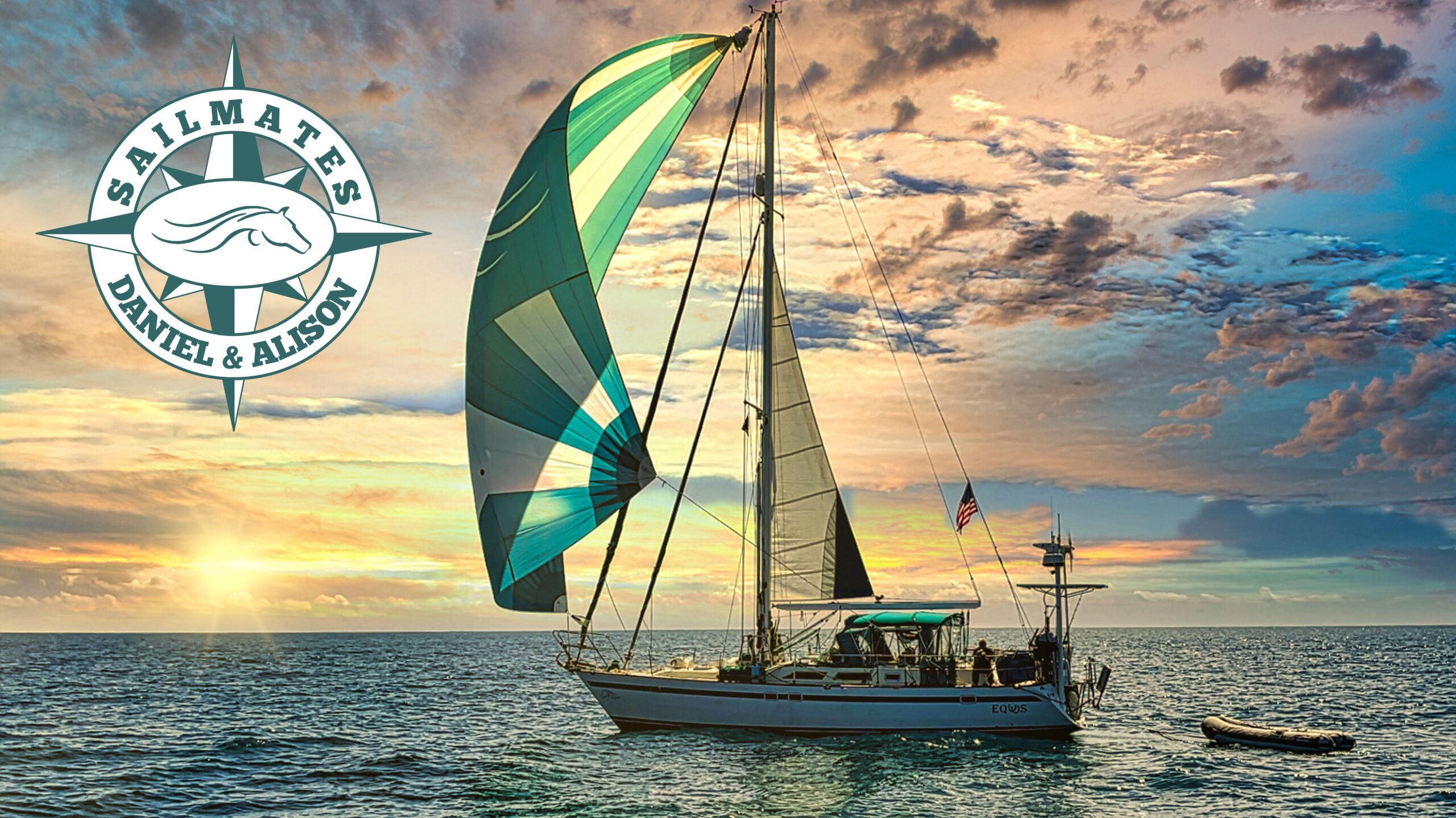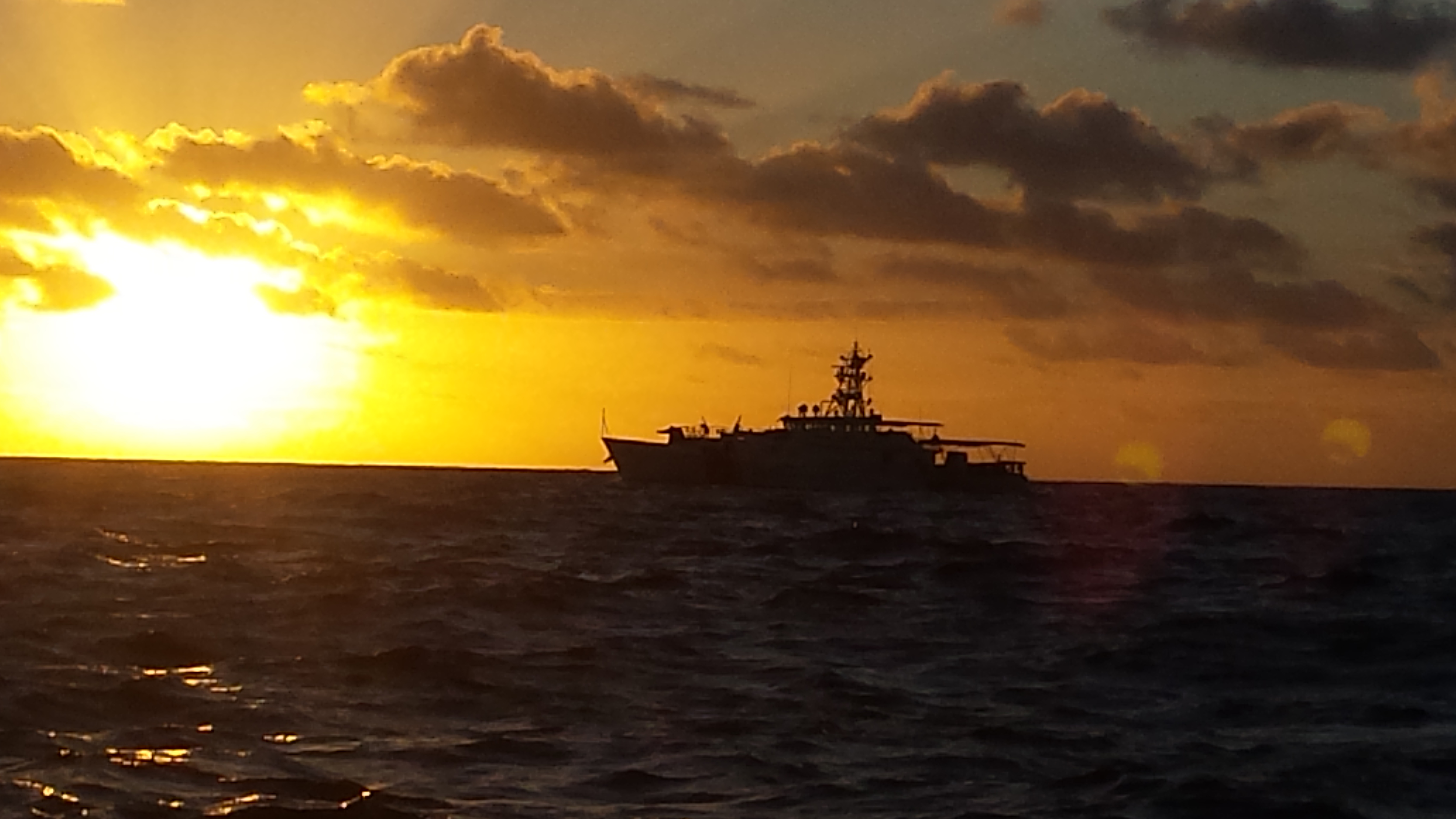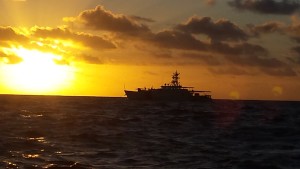John Kretschmer Passage – Part 4
“She watched the gap between ship and shore grow to a huge gulf. Perhaps this was a little like dying, the departed no longer visible to the others, yet both still existed, only in different worlds.” ― Susan Wiggs, The Charm School
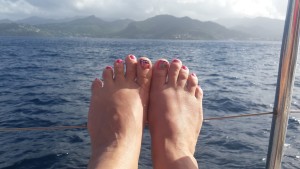
I mentioned in my previous post that right before we departed Tortola, our captain John Kretschmer had each of the crew members calculate the distance and boat speed. We were asked to predict how many days, hours and minutes it would take to reach the buoy marking the entrance to the harbor in Grenada. Our voyage was relatively uneventful, and having crossed an expansive section of sea, the green hills of Grenada finally loomed through the morning mist. Land was a welcome sight and the harbor entrance gradually became visible, hosting a myriad of colorful flags, bobbing masts and a landscape adorned with brilliant foliage. Seeing land after being devoid for many days, especially a distant and foreign land sends a chill down the spine and creates an indescribable feeling of adventure.

Dan and I had completed our 2 to 5 watch and were tucked away in a berth directly below the cockpit area. Since this was one of the few beds that could accommodate a couple, and we were the only couple on the boat, this was a good choice for us. While there was room for us to lie side by side in the 4ft. wide berth, the fact that we were constantly heeled to one side made it impossible to lay parallel to one another. We would topple and be on top of each other if we tried to sleep in a normal position. As a result, I would turn sideways and prop a leg and bent knee against the bulkhead and stretch sideways across the very end of the berth. Dan would strategically wedge himself sideways as well, however being 2 feet longer than me, the sideways position didn’t work out well for him at all. Not long into our intermittent slumber, there was a flurry of footfalls and raised voices above our heads in the cockpit. I tried to ignore the commotion until I heard the words, “You better wake John”.
Dan and I popped above with a quickness and alacrity honed from sleeping to the last possible minute before having to be on deck for our watch. Star Trek has nothing on us with their transporters. In the yellow glow of the morning sunrise, out attention was drawn to a large vessel hanging about a mile off our stern. John was on the radio having a conversation with what we guessed to be someone aboard that vessel. We caught the tail end of the transmission, “Quetzal, prepare to be boarded.”
Within a few moments, all of the crew was on deck and waiting to hear what was transpiring in the wee hours of the dawn. We got the scoop from the men who had been on watch. Apparently, around 5 A.M. that morning, shortly after they took their 5 to 8 watch, a ship showed up on the radar. Straining in the still dark hours of pre-dawn, the men made out lights in the distance, corresponding to the signal on the radar screen. While watching the ship pass safely, quite a distance from our boat, the lights were suddenly extinguished. This was indeed curious behavior. The men kept an eye on the radar screen and watched with growing concern as the boat sped up and made a giant loop falling in behind us. Eventually, the lights turned back on just as the sun began to peek over the horizon, and the boat was spotted trailing us not more than a half a mile away.
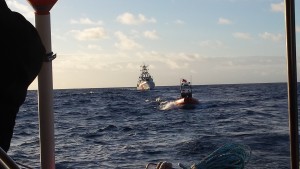
Of the two men, one of them was much more intense and abrupt than the other. It seemed as if they were almost playing the role of “Good Cop, Bad Cop.” The “Good” guy assured us it was easier to take all 7 passports back to the ship to verify the information, rather than try to communicate by radio all of the passport information. He assured us several times, the whole process would take about 30 minutes and then the passports would be back on board. He stopped his explanation to search his backpack for a waterproof bag he was supposedly carrying. When he couldn’t find it, he pulled out a small shopping bag that he was going to put our passports into and hand them off the deck, from two simultaneously moving boats, to transport to yet another boat.
“Wait a minute!” I erupted, not able to stand it any longer. “It’s one thing you are taking our passports. It is another to pass them over the water in a shopping bag. If you don’t have a water tight bag, I will at least go get a zip lock bag to put them in.” The officer shrugged and I darted below and returned with a giant zip lock to deposit the important documents. I knew getting home without them would be a nightmare. A short radio call and a few minutes later, the RHIB reappeared beside our boat and our passports were handed over. The RHIB veered away, making our 6 knots of speed seem like a crawl, and sped off once again toward the larger boat.
Over an hour passed. There was no return of the RHIB, or our documents. The two men aboard pried us with questions and began asking very repetitive questions about equipment and documentation. John interrupted them on several occasions requesting clarification on why we were being grilled about routine equipment that went above and beyond required specifications. Getting rather irritated, John still complied politely with their requests and the men announced they would be taking the information back to their ship and would get back to us shortly. The RHIB appeared; the men jumped back aboard. I glanced at the console of the RHIB and happened to notice our passports, still in their zip lock bag, in the same place they had been an hour ago when they were first handed over. Something smelled very fishy about the visit and it wasn’t Quetzal. We hadn’t caught one fish the entire trip.
To be continued….

